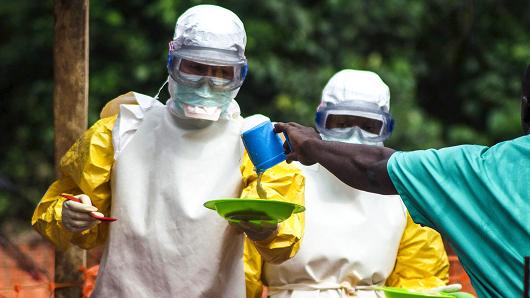


Posted October 9, 2014
Anyone reading news coming out of the US lately could be forgiven for thinking the Ebola virus will wipe out the entire world population.
 That might be a slight exaggeration, but it does highlight that the news media is interested in selling newspapers, not necessarily giving a balanced account of issues.
That might be a slight exaggeration, but it does highlight that the news media is interested in selling newspapers, not necessarily giving a balanced account of issues.
Sensationalism sells, so that’s what many media outlets will look for in their stories. For example, let’s assume three scientists all have different views over how many people will die from Ebola. One says, 10,000, one says 100,000 and another says 1 billion. Guess which one will be quoted in the newspaper.
The coverage is no different from AIDS, which some believed would cripple both homosexuals and heterosexuals throughout the world. The same could be said for SARS and Swine Flu.
If you really want a balanced view of these things, the news media is not the place to look. Reputable health websites would be a far better option.
This ability of journalists to select what they use in a story is also a good lesson for anyone giving a media interview. You need to remember that anything you say can be taken out of context and used on its own. In other words, the journalist will select only a fraction of what you say to use in the story.
For example, a reporter may ask a scientist: “Can you rule out billions of people dying from this disease.” A legitimate answer may be: “I can’t rule out billions of people dying from this disease, but I think it’s almost impossible with our detection systems and 21st Century medical treatment.”
The reporter could well use the first part of that answer and ignore the second. The story headline could then read: “Scientist admits billions could die from Ebola.” The rule here is that if you don’t want it quoted out of context, don’t say it at all. This is a common complaint among our media training clients.
Having said all this, I don't wish to downplay the seriousness of the disease. I just think the media often overdo this. I must also say New Zealand produced stories on Ebola have been more balanced.
Campbell Live ran a great piece a few nights ago at Middlemore Hospital where the doctor in charge said there was only something like one change in 4000 of the disease even reaching New Zealand. But remember, most coverage on this comes from the US.
For more on my media training or crisis communication planning workshops, contact [email protected]